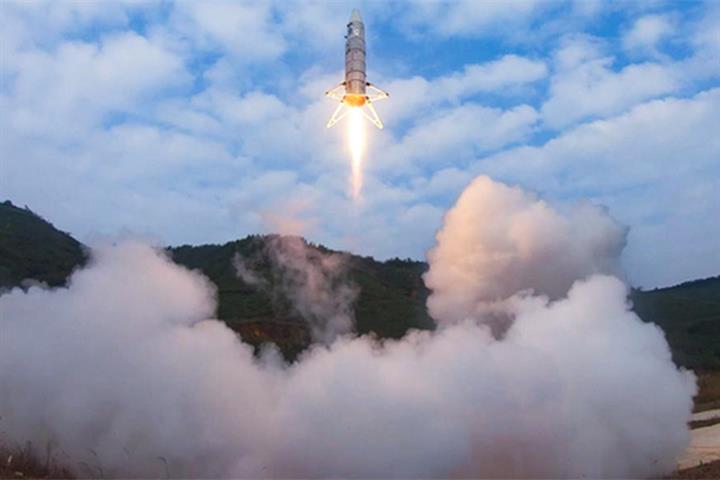 China's SpaceX to Start Space Tours in 2027; Two Tickets Sell in First Three Minutes
China's SpaceX to Start Space Tours in 2027; Two Tickets Sell in First Three Minutes(Yicai) Nov. 1 -- Jiangsu Deep Blue Aerospace Technology has become the first Chinese aerospace firm to begin selling tickets to outer space, in a space tour program that is expected to achieve lift off in 2027.
The private space firm is offering a 12-minute journey into outer space aboard the Nantong-based company’s self-developed Nebula-1 rocket for a price of CNY1.5 million (USD210.5 million). But people who buy now qualify for a discount of CNY500,000 (USD70,206). Within three minutes of sales starting at the end of last month, two tickets were snapped up.
"Prices will be expensive in the beginning because of the initial high costs and other factors. Although tickets now cost CNY1.5 million, they will soon drop to CNY1 million and in the coming years, they will only get cheaper," founder and Chief Executive Officer Huo Liang told Yicai.
"We hope to be able to announce the names of the individuals who purchased space tickets at a suitable time, but we must first obtain their consent," he added.
Deep Blue, which develops liquid reusable carrier rockets and provides space launch services, is the first company in China to start selling space tours. It is part of a suborbital travel program, which means the rocket will reach outer space but will not enter orbit.
Overseas, Space X and other firm's such as British entrepreneur Richard Branson’s Virgin Galactic Holdings already offer space tours with prices ranging from USD125,000 to USD55 million. And there are Chinese rivals which have plans to launch similar tours in 2028 at prices ranging between CNY2 million (USD280,700) and CNY3 million.
Chinese millionaires’ annual spending tumbled 11 percent on average to CNY2.4 million (USD337,000), according to a survey of 750 high-net-worth individuals with assets of more than CNY10 million (USD1.4 million) that was released earlier this year. But expenditure on travel jumped 10 percent.
In May 2022, Deep Blue completed China's first kilometer-level vertical takeoff and landing test with a liquid rocket. The firm finalized its Series B2 financing round on July 31, raising the funds needed for innovations in reusable rocket technology and the commercialization of the Nebula-1 reusable rocket.
Editor: Kim Taylor